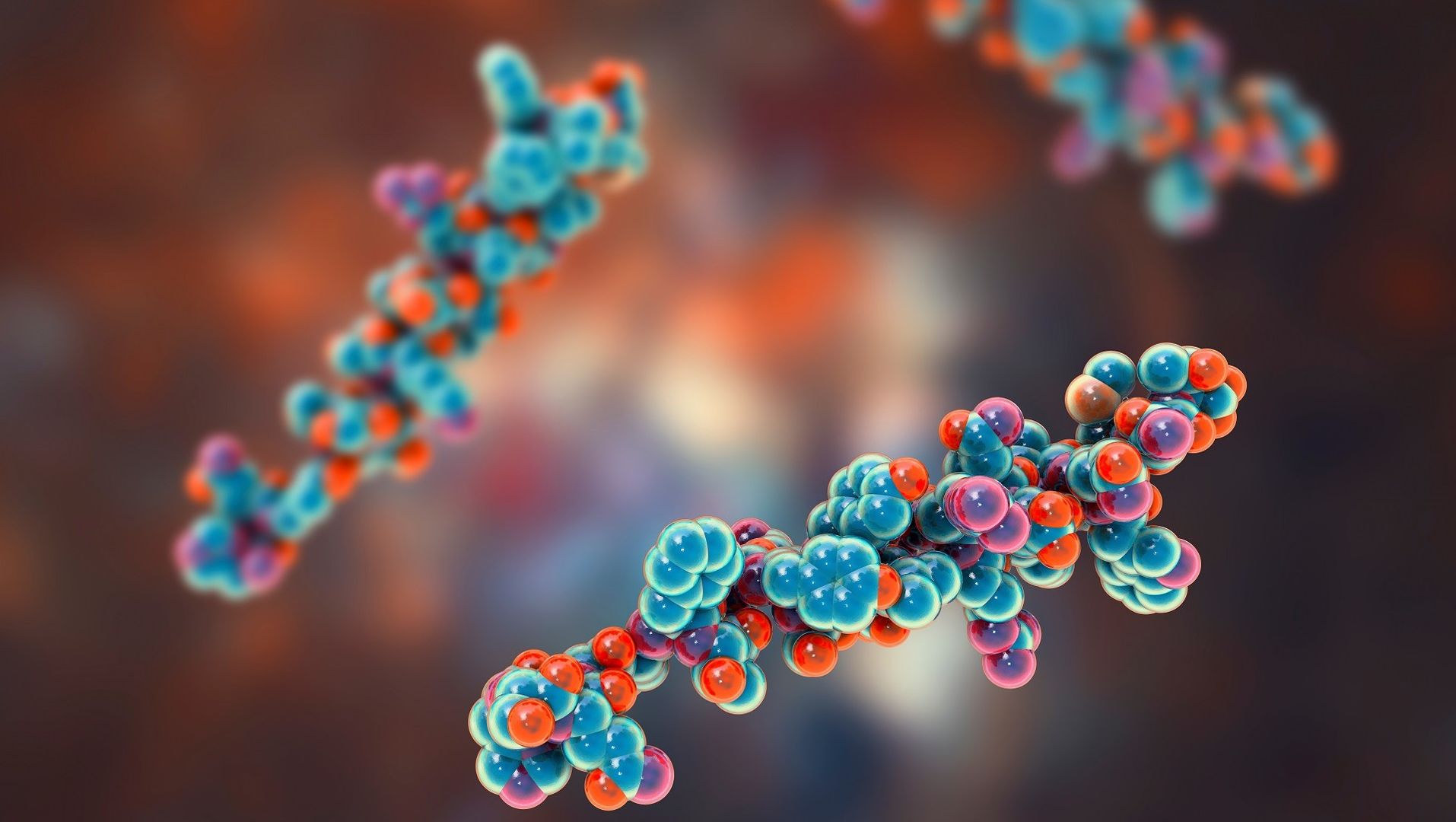At Creative Proteomics, we offer comprehensive large-scale immune peptide mass spectrometry analysis services. Our cutting-edge technologies and experienced scientists enable us to screen and analyze immune peptide libraries with high accuracy and efficiency. Immune peptide library screening is an essential process in drug discovery and development, as it enables the identification of potential therapeutic peptides for various diseases, including cancer, autoimmune disorders, and infectious diseases.
What is Large-Scale Immune Peptide Mass Spectrometry Analysis?
Large-scale immunopeptide mass spectrometry analysis encompasses a sophisticated methodology employed to discern and quantify peptides derived from the immune system prodigiously and efficiently. This approach capitalizes on the employment of mass spectrometry, a potent analytical technique that gauges the mass-to-charge ratio of molecules, to scrutinize and categorize immunopeptides present in biological specimens. The immune system generates an extensive array of peptides, including antigens, cytokines, chemokines, and other signaling molecules, which assume pivotal functions in orchestrating immune responses, fostering inflammation, and influencing the trajectory of diseases. By analyzing these immune peptides, researchers can gain insights into the immune response, identify potential biomarkers of diseases, and study the effects of immunotherapies or vaccines.
Large-Scale Immune Peptide Mass Spectrometry Analysis by Creative Proteomics
- Immune Peptide Library Screening
- High-throughput screening of immune peptide libraries to identify biologically active peptides.
- Evaluation of peptide binding affinity to major histocompatibility complexes (MHCs).
- Identification of immunogenic epitopes for vaccine development.
- Assessment of peptide-protein interactions and binding kinetics.
- Peptide Immunogenicity Analysis
- Determination of peptide immunogenicity potential for vaccine design.
- Prediction of peptide recognition by immune cells and ensuing immune responses.
- Identification of key factors influencing peptide immunogenicity.
- Assessment of antigenicity and potential immunotoxicity of candidate peptides.
- Mass Spectrometry Analysis
- Implementation of innovative mass spectrometry-based approaches, such as tandem mass tags (TMT) and isobaric tags for relative and absolute quantitation (iTRAQ).
- Integration of database searching algorithms and statistical tools for peptide analysis and interpretation.
- Post-Translational Modification Analysis
Many immune peptides undergo post-translational modifications that affect their function and immunogenicity. Our mass spectrometry-based approach can unravel these modifications, including phosphorylation, glycosylation, acetylation, and more.
Large-Scale Immune Peptide Mass Spectrometry Analysis Methods
Our large-scale immune peptide mass spectrometry analysis services utilize various state-of-the-art techniques and methods. The analysis methods we employ include:
- Shotgun Proteomics: This method involves enzymatic digestion of the immune peptide library, followed by liquid chromatography tandem mass spectrometry (LC-MS/MS) analysis. It enables the identification and quantification of peptides based on their unique mass-to-charge ratios and fragmentation patterns.
- Surface Plasmon Resonance (SPR): SPR is a label-free technique that measures the interaction between immobilized molecules, including peptides, and their binding partners in real-time. It provides valuable information about binding affinity, kinetics, and specificity.
- Ion Mobility Spectrometry (IMS): IMS enhances peptide identification and characterization by separating ions in the gas phase based on their size, shape, and charge. This technique offers increased sensitivity and resolution, especially for complex peptide mixtures.
- High-Resolution Mass Spectrometry: We employ high-resolution mass spectrometry instruments, such as Orbitrap-based systems, which provide superior mass accuracy, resolution, and dynamic range. This allows for precise identification and quantification of peptides in complex samples.
- Quantitative Proteomics: We utilize quantitative proteomics techniques, such as label-based (e.g., TMT, iTRAQ) or label-free (e.g., spectral counting, intensity-based) approaches, to assess changes in peptide abundance and differential expression among different experimental conditions or treatment groups.
Sample Requirement
- Sample Purity
- The sample should have a high purity, usually greater than 95%.
- Impurities in the sample should be minimized, especially contamination by other proteins and peptides should be less than 10%.
- If the sample contains multiple peptides, care should be taken to prevent cross-reactivity between them.
- Sample Concentration
- The sample concentration should generally be moderate. Too high or too low a concentration will affect the results of mass spectrometry detection.
- Generally, the recommended sample concentration is 10-100 μM.
- For constrained sequencing experiments, sample concentrations can be higher, such as 100-1000 μM.
- Sample Stability: Samples need to be stable before detection to avoid degradation or denaturation.
- Sample Dissolution: Samples should be dissolved in a suitable buffer to ensure the effectiveness of immunoassay spectrometry detection.
- Sample Capacity: The sample capacity must be sufficient for immunoassay spectrometry detection, which usually requires sufficient sample volume.
Creative Proteomics offers a comprehensive large-scale immune peptide mass spectrometry analysis service, combining advanced techniques, state-of-the-art instrumentation, and expert scientific support. We aim to accelerate your research and drug discovery efforts by providing reliable and accurate peptide screening and characterization. Contact us today to discuss your specific requirements and find out how we can assist you in achieving your scientific goals.
* For research use only. Not for use in diagnostic procedures!
Our customer service representatives are available 24 hours a day, 7 days a week.


